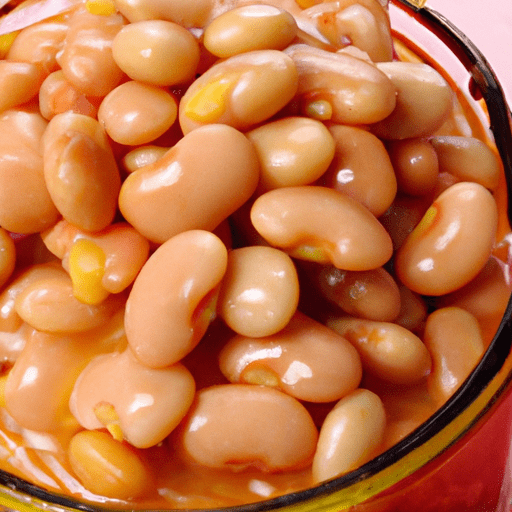Canned Broad Beans: A Versatile and Nutritious Ingredient
If you’re looking to add a touch of versatility and nutritional value to your cooking, look no further than canned broad beans. These humble legumes, also known as fava beans, are a pantry staple that can elevate many dishes with their unique flavor and texture. In this blog post, we’ll explore the taste, common uses, nutritional value, and interesting facts about canned broad beans.
Taste and Texture
Canned broad beans have a delicate and slightly nutty flavor, making them an excellent addition to a variety of recipes. The texture is buttery and creamy, making them a popular choice for soups, salads, dips, and stews. When properly cooked, they maintain their shape and provide a satisfying bite.
Common Uses in Cooking
Canned broad beans are incredibly versatile and can be used in numerous culinary applications. Here are a few popular ways to enjoy these delightful legumes:
1. Salads
Broad beans can add a burst of flavor and color to any salad. Whether you’re making a simple green salad or a hearty Mediterranean-inspired dish, canned broad beans bring a satisfying creaminess and earthy touch.
2. Dips and Spreads
Whip up a delicious and nutritious dip by blending canned broad beans with garlic, lemon juice, olive oil, and your favorite herbs. The result is a smooth and silky spread perfect for sandwiches, finger foods, or a healthy snack.
3. Soups and Stews
Canned broad beans are a fantastic addition to soups and stews, adding both texture and flavor. They pair exceptionally well with ingredients like tomatoes, onions, carrots, and various spices. Try adding them to a hearty minestrone or a comforting Moroccan stew for an extra dimension of taste.
4. Side Dishes
Make a memorable side dish by sautéing or roasting canned broad beans with garlic, herbs, and a drizzle of olive oil. Their creamy interior and slightly firm exterior create an enjoyable contrast that will complement any main course.
Nutritional Value
In addition to their culinary versatility, canned broad beans are also packed with essential nutrients. Here’s a breakdown of their nutritional value per serving:
- Protein: Canned broad beans provide a significant source of plant-based protein, making them an excellent option for vegetarians and vegans.
- Fiber: These legumes are also high in fiber, which aids in digestion and helps keep you feeling full and satisfied.
- Vitamins and Minerals: Canned broad beans contain a range of vitamins and minerals, including folate, iron, potassium, and magnesium.
Interesting History and Facts
- Broad beans have a rich history dating back thousands of years. They were one of the first cultivated crops and were extensively grown in ancient Egypt, Greece, and Rome.
- In some cultures, broad beans are considered to bring good luck and are traditionally eaten on New Year’s Day.
- Broad beans have been featured in various cuisines, from Egyptian ful medames to Italian fava bean soups and Spanish habas con jamón.
In conclusion, canned broad beans are a flexible and nutritious ingredient that can elevate your cooking. Their delicate flavor, creamy texture, and versatility make them a fantastic addition to a wide range of dishes. So, next time you’re looking to diversify your pantry, grab a can of broad beans and let your culinary creativity take flight.
Interesting Facts About Canned Broad Beans
Origin: Broad beans, also known as fava beans, have a long history and are believed to have originated in the Mediterranean and Middle Eastern regions. They have been cultivated for thousands of years and were one of the first crops to be domesticated in Western Asia.
Common Uses: Canned broad beans are versatile and used in various cuisines worldwide. They are commonly added to salads, stews, soups, and dips. Broad beans are also a popular ingredient in Mediterranean, Middle Eastern, and North African cuisines, where they are often used in traditional dishes like falafel and ful medames.
Nutritional Benefits: Canned broad beans are highly nutritious and provide several essential nutrients. They are a good source of dietary fiber, protein, and complex carbohydrates. Additionally, they contain significant amounts of vitamins such as vitamin K, vitamin B6, folate, and vitamin C. They also provide minerals like iron, manganese, phosphorus, and potassium.
Unique Properties: Broad beans are unique in that they contain a compound called L-dopa (levodopa), which is a precursor to dopamine, a neurotransmitter that helps regulate movement. This compound can be beneficial for individuals with Parkinson’s disease, as it is commonly used in medications for its dopamine-enhancing effects.
Historical Significance: Broad beans hold historical significance in several cultures. In ancient Rome, they were considered a sacred food and used in religious ceremonies. They were also used as a food staple during times of scarcity and war due to their ability to grow in various climates and soil conditions.
Cooking Tip: Canned broad beans are cooked and can be eaten straight from the can, making them a convenient ingredient. However, if you prefer a fresher taste and texture, you can also blanch or sauté them briefly in a pan before adding them to your dish.
Please note that while canned broad beans offer convenience, fresh broad beans have a slightly different taste and texture.




Use the share button below if you liked it.
It makes me smile, when I see it.